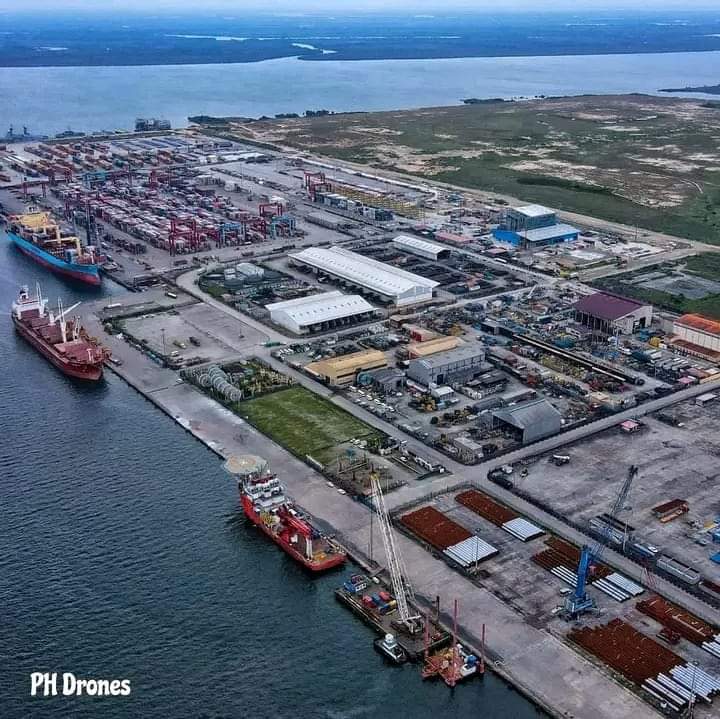Business
Oil Firms Get Safe Oil Transport Route

Oil companies in Nigeria now have a safe transport route for their crude oil following the inauguration of the new Amukpe-Escravos Pipeline.
This is sequel to the vandalisation of the 180,000 barrels Trans-Niger pipeline by oil thieves, causing oil majors to abandon the facility.
The new crude oil transportation choice will decrease incidents of oil theft, which has affected the revenues of many oil companies in Nigeria and by extension the country’s economy.
According to reports, the new pipeline has a capacity to move 160,000 barrels of crude oil per day and the 67-kilometre-long pipeline is mostly underground, which hides it away from the prying eyes of oil thieves and pipeline vandals.
Sources say the dewatering for the new pipeline would be completed on Friday, while site Acceptance Test is being conducted with the movement of commercial-quantity crude volumes.
Already, some top players in the oil industry have started leveraging the new pipeline, one of which is Seplat Energy.
The Nigerian-based major oil company, which is listed on the floor of the Nigerian Exchange and the London Stock Exchange, said it has started commercial transportation of crude oil via the Amukpe-Escravos Pipeline.
Seplat Energy’s CEO, Roger Brown, said the development would aid the firm and guarantee a better delivery for stakeholders.
He continued that the commercial launch of the pipeline is very important for the company in the country as it offers more safe export routes which will guarantee higher revenues and profit-making for the company and enable the company to make a larger contribution to the country’s economy.
Meanwhile, Seplat and other top oil firms had relied on the Trans-Niger pipeline to move their crude products.
The pipeline was attacked recently, causing oil companies to abandon it. It has been difficult for oil firms in Nigeria to move products due to oil thefts which is the main reason the country has failed to meet its daily Organisation of Petroleum Exporting Countries (OPEC) quota of 1.77 million barrels of crude oil export.
The severity of the problem caused major companies to receive just five per cent of all crude volumes between October 2021 and February, this year which were transported via the Trans-Niger pipeline.
The economy received further blow recently as an oil pipeline with the capacity to move 180,000 barrels of crude daily across the country was hit by oil thieves, forcing it to halt the transportation of oil since June.
This further worsens the various incidents of crude oil theft which have become a challenge in the upstream sector, which stakeholders see as organised.
Bloomberg quoted an insider who is familiar with the issue as saying that the Trans-Niger pipeline has not been officially closed with the communication bandwidth which is about 15 per cent of the country’s average daily output.
Business
Tinubu’s RHI Doles Out N50m To 1,000 Kwara Petty Traders

Business
UBA To Educate SMEs, Business Owners On Withholding Tax

Business
Nigeria Losing $40b Annually From Maritime Sector – NIMENA
-
Business5 days ago
$1trn Economy: LCCI Advocates More Investments In Telecom Infrastructure
-
Rivers5 days ago
RSG Seeks Stakeholders’ Collaboration For Women, Children Improvement
-
Nation5 days ago
UNIZIK Lecturers Protest Non-Payment Of Salaries For Five Years
-
Business5 days ago
Nigeria Losing $40b Annually From Maritime Sector – NIMENA
-

 Niger Delta5 days ago
Niger Delta5 days agoCommissioner Hails RSHA Speaker Over Promise Of Constituency Projects To Ogu/Bolo
-

 Niger Delta5 days ago
Niger Delta5 days agoNDDC’s Performance, Boost To Tinubu’s Government – Coalition
-

 Business5 days ago
Business5 days agoUBA To Educate SMEs, Business Owners On Withholding Tax
-
Rivers5 days ago
PHCCIMA Breaks Down Rivers 2025 Budget

